Theoretically, the longevity of the Perikatan Nasional (PN) government ranges from maximum 38 months to 11 weeks, if Dr Mahathir Mohamad can pull more people and deny him a working majority when the Parliament reconvenes on May 18.
My guess is it will be in between the two extremes, hinging on three factors that will be explained below.
With the rising Covid-19 outbreak and the on-going US-China trade war, PN comes into power in one of the most trying times for Malaysia. If external factors have contributed to Pakatan Harapan’s less than satisfactory performance in economy, on top of its own shortcomings, they are unlikely to be kind to PN.
Harapan had some under-performing ministers who were chosen because of the party hierarchy and demographic quota.
With a smaller pool of MPs from BN (42), Bersatu (31?), PAS (18), GPS (18) and a handful of minor parties and independent, Muhyiddin Yassin’s hands are tight to form a more competent cabinet to deliver economic growth.
Any ministers who shine amidst such mediocracy, like one may expect Hishamuddin Hussein (photo) or Khairy Jamaluddin to be, will quickly emerge as Muhyiddin’s likely successor.
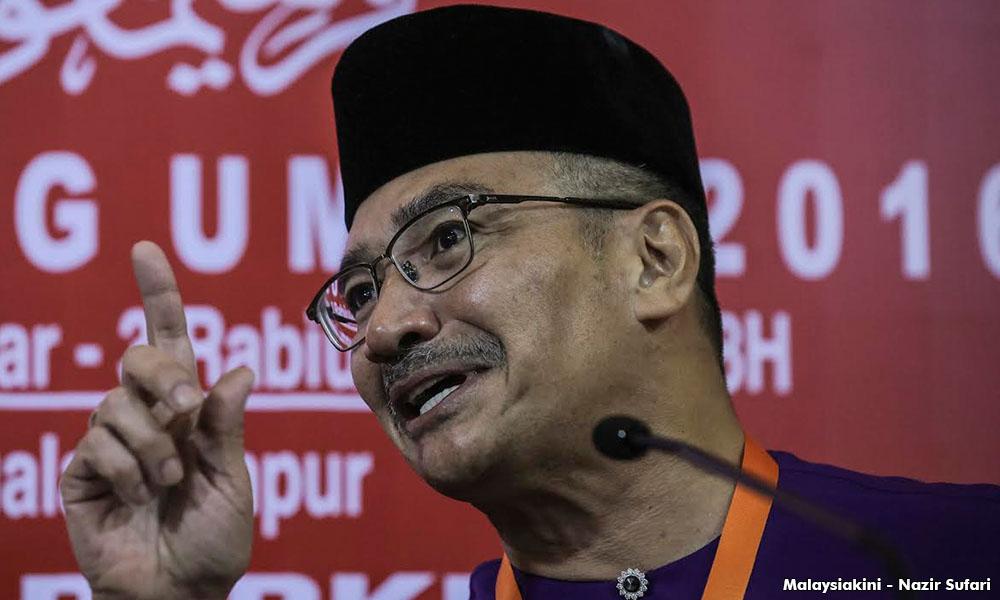
As it takes only a few parliamentarians to switch side and bring down the government, Muhyiddin will likely be held to ransom by frogs.
Therefore, Muhyiddin will likely have more than 28 ministers and 27 deputy ministers in the last administration, possibly reaching around 65 in total, and appoint most backbenchers to head statutory bodies or GLCs.
Once the dust is settled temporarily, barring major disasters like economic meltdown, the longevity of Muhyiddin’s government may depend on three factors: corruption trials, the unity of three Malay parties and ethnic relations.
Factor 1: Corruption trials
Muhyiddin’s immediate test is whether to let the high-profile corruption trials continue as it would have been under Harapan. The candidate for the next attorney-general would be an indicator where the wind will blow.
As of now, six out of Umno’s 39 MPs: Najib Abdul Razak, Ahmad Zahid Hamidi, Tengku Adnan Tengku Mansor, Ahmad Mazlan, Abdul Azeez Abdul Rahim, and Bung Mokhtar, are on trial for corruption, breach of trust and/or money laundering. That’s five percent strong of Muhyiddin’s parliamentary majority.
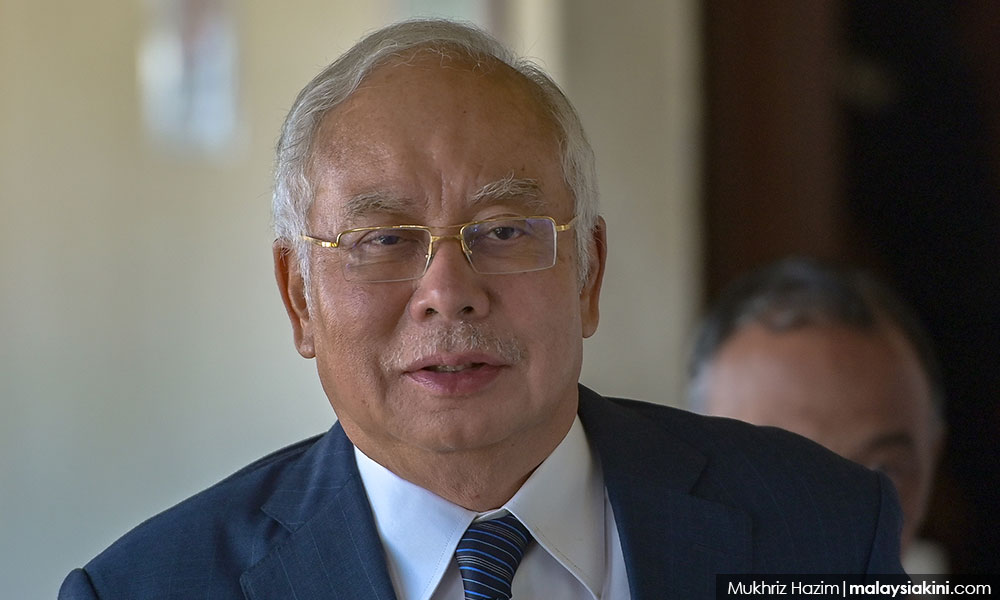
Muhyiddin’s best bet is to be Malaysia’s Kim Yong Sam. Kim was the South Korean opposition leader who merged his party with President Roh Tae Woo’s party in 1990 and went on to win the presidential election in 1992.
Three years later, Roh and his predecessor Chun Doo Hwan were charged first for corruption, then mutiny and treason. Chun and Roh were sentenced for life and 17 years but pardoned by Kim in 1997.
I doubt Najib and Zahid would appreciate Chun and Roh’s fate even if Muhyiddin can promise to secure pardon.
Muhyiddin would be soon in a dilemma. If his AG does not let Najib and Zahid walk free, they may plot to topple him. However, if his AG does so, protests will await Muhyiddin. When protests get big enough, frogs will jump again in the name of national interests, and his government collapses.
Factor 2: Malay unity with three Malay parties
If Harapan’s Achilles’ heel was the component parties were too different from each other, PN’s would be exactly the opposite: Umno, Bersatu and PAS are too similar.
Paradoxically, you cannot have Malay unity with three Malay parties in government even that’s what they have been shouting all along. The marriages of Umno-PAS (1973-1977) and PAS-S46 (1990-1996) all ended up in bitter divorce.
Once the dust settles, PN will have to make a fundamental decision: should they form a permanent coalition or should they prepare to stand against each other in GE15? Delay makes the latter as the default option until it is reversed.
If their alliance is expected to end before GE15, they will watch and check on each other, grab as many positions and resources as possible, to prepare for the next battle.
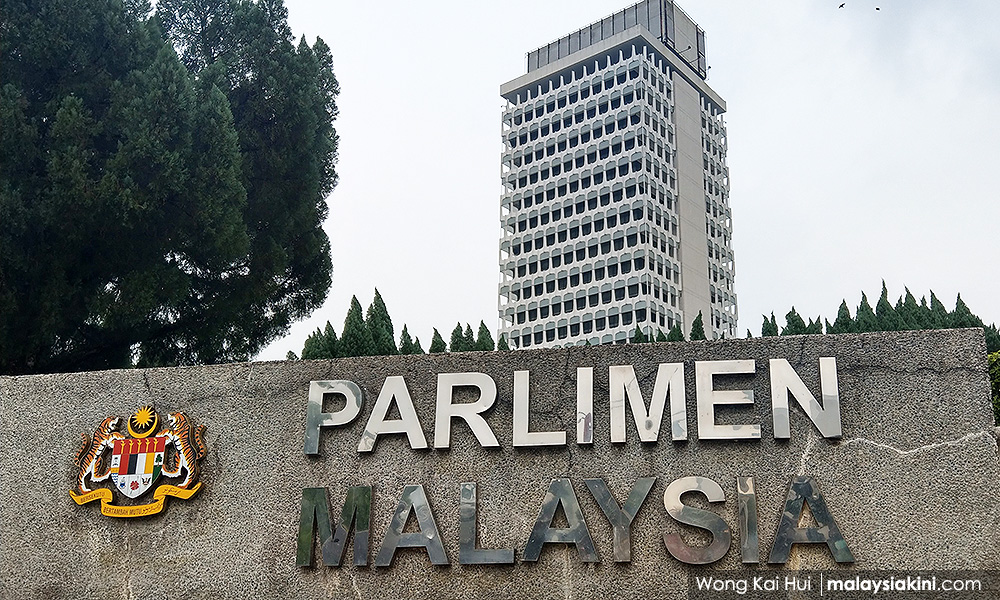
The rivalry and rift between the trio grow as every day passes, counting down to July 15, 2023, when the Parliament must stand dissolved.
What if they choose to formalise their union like Harapan? Well, they will encounter the same problem as Harapan. The rivalry for dominance between the smaller Bersatu and the larger PKR will happen between the smaller Bersatu and the larger Umno, added PAS on the side.
All these three parties were largely contesting against each other in GE14, if a permanent coalition is formed, how many and which seats should go to which party in GE15?
The inconvenient fact is, for every Malay candidate who gets to represent PN, there will likely be two aspirants who are dropped and unhappy.
Ultimately, Malay unity requires not a permanent coalition but one single party. However, then some big fishes in their small pond will become small fishes in the bigger pond, why should these fishes go for a merger?
Given their similarity and past ties, Umno and Bersatu may eventually merge but that would seriously put PAS in a very disadvantaged position and PAS may then pull out to force a snap poll.
Factor 3: Communal relations
There third factor that will decide PN’s longevity is communal relations between Malays and non-Malays.
The dynamic is most counter-intuitive and you may find it mind-boggling. I will break it into three parts.
First, despite all three main parties in PN are Malay-based, the government will try to be moderate at least for the start. This is why Muhyiddin who said he was “Malay first, Malaysian second” as BN’s DPM now wants to be a PM for everyone and PAS also called for national unity.
This is not just because they hope to win back some non-Malays’ hearts and some mixed seats in GE15. More fundamentally, ethnoreligious strife – which may help shore up opposition’s support – is bad for the economy and the government, which they are now.
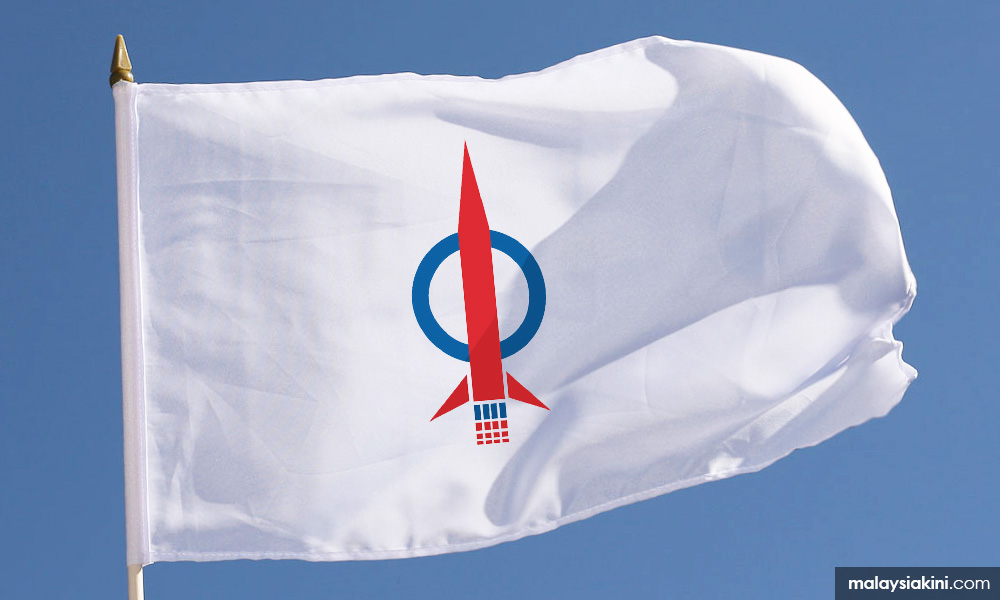
Second, ironically, Bersatu, Umno and PAS may soon find themselves in the “DAP dilemma”.
While DAP is seen by many Malays as too assertive for minority rights, it had retreated a lot from its previous position when in opposition. Their representatives restrained from speaking up on many issues to the extent it was called the “Diam Diam Party” by some Chinese.
The DAP dilemma is one of market repositioning. If a coffee shop has built up a loyal customer base with super-strong “kopi-o kaw kaw”, turning around and selling “decaf coffee” will invite backlashes.
That is what will likely meet Umno, PAS and Bersatu politicians that have played up the non-Malay/non-Muslim dominance. Now they are in power unchecked by the non-Malays (MCA and MIC will be more yesman than during BN time), their supporters will ask them to deliver changes Harapan Malay parties that had been accused of not making.
The “DAP dilemma” will hit hardest on PAS, whose supporters may push for implementation of Hudud punishments or closing down of casino in Genting Highlands and the Heineken beer brewery near the Federal Highway.
Any of these moves will scare away foreign investment and drive the economy downward when the Covid-19 outbreak is threatening a global recession. If PAS supporters do not mind such economic cost, Umno, Bersatu, Malay aristocrats and businesspeople, and many ordinary Malays do.
So, PN Malay parties will need to do some symbolic measures to signal their commitment to the Malay agenda but not rocking the boat, so that they won’t look increasingly like PKR, as how DAP was accused of becoming the MCA in Harapan.
Third, the most intriguing part of this dynamics, is that the PN Malay parties may be saved from both their “DAP dilemma” and “Malay unity” problem by the non-Malays.
As long as non-Malays over-react to their pro-Malay policies, to the extent that the ordinary Malays feel threatened and demand PN parties to be united, PN will stay intact and GE15 a foregone conclusion.
On the other hand, de-escalation of ethnic tensions will cause de-orientation of PN parties and accelerate their internal contradiction.
Muhyiddin’s mission impossible
Muhyiddin said he takes up the top job to end the country’s political crisis. I believe in his desire but doubt his capability. Beyond personalities, much of Harapan’s weakness lies in both the political system and social division, which PN now inherits.
Hence, a backdoor government based on shady deals is unlikely to do a better job than Harapan. Worse, coup begets coup and defection begets defection.
WONG CHIN HUAT is an electoral system expert at Jeffrey Sachs Centre on Sustainable Development, Sunway University.
-MKINI
Stayin’ alive: Muhyiddin’s three political challenges
In Prime Minister Muhyiddin Yassin’s inaugural speech on Monday night may have briefly outlined the direction of his administration, but nothing was said of his relationship with his new allies.
Currently, there are four major factions in his government.
The first is Muhyiddin’s own party Bersatu (30 MPs), followed by Umno (39 MPs), PAS (18 MPs) and finally Gabungan Parti Sarawak (18 MPs). This article does not take the minor parties into account.
For Bersatu, they find themselves in familiar territory – heading a federal government without numerical superiority.
How Muhyiddin will navigate the intricacies and ideological differences of his allies will likely be the focal point in the weeks and months ahead.
This article will look at three of Muhyiddin’s biggest challenges in managing relations with his new allies.
To whom the spoils?
On Monday night, Muhyiddin had stated that his cabinet colleagues will be “clean” and possess “integrity”, while emphasising that his administration will pursue an anti-corruption drive.
That statement comes at a time when a number of his allies in Umno are facing very serious graft charges such as Umno president Ahmad Zahid Hamidi and his predecessor Najib Abdul Razak.
By virtue of being the largest party in Muhyiddin’s coalition, Umno will likely claim the deputy prime minister’s position.
This is a powerful position which will chair many cabinet committees and the powerful National Land Council, which decides on land utilisation policies.
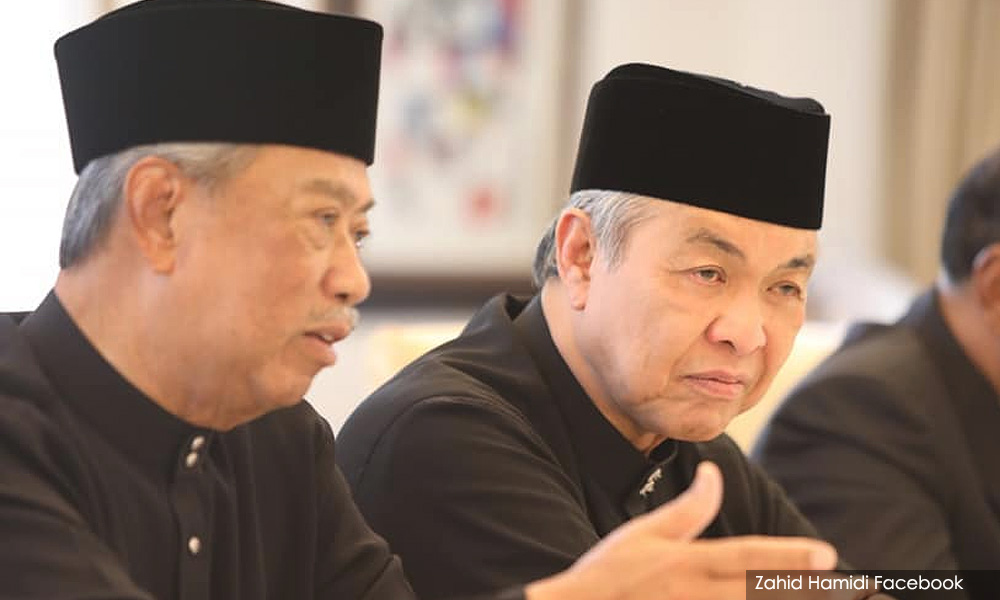
Zahid is likely out of the running due to his court cases while Umno No 2 Mohamad Hassan is less likely to be nominated by virtue of him not being an MP.
It is more likely Muhyiddin will have to choose from a wider pool of Umno MPs, which could upset the natural power structure within Umno and designate the coalition’s next prime ministerial candidate.
As the largest party in Muhyiddin’s coalition by the number of MPs, Umno will have the bargaining power to make demands for senior cabinet positions. Umno has not publicly made demands.
Muhyiddin will also have to contemplate how he will accommodate PAS president Abdul Hadi Awang – one of the most imposing figures in the Islamist party over the past four decades – into his cabinet.
Hadi would be under pressure by his supporters to implement Islamic policies promised for decades and would no doubt request a fitting cabinet position to see this through.
Placating grassroots
Meanwhile, Muhyiddin, now the undisputed leader of Bersatu, will have to find ways to placate grassroots who have entrenched themselves in government positions across the country and may have to give way to new coalition partners.
In 2018, Bersatu was not only handed the premiership, but the party controlled the Kedah, Johor and Bersatu governments.
The axe has already fallen on Bersatu in Johor, with Umno’s Hasni Mohammad taking over from Bersatu Dr Sahruddin Jamal as menteri besar. Sahruddin is the shortest-lived Johor menteri besar ever.
A similar move is expected to take place in Perak as well with Umno’s Saraani Mohamad poised to replace Bersatu’s Faizal Azumu as menteri besar, while the situation in Kedah remained unclear.
This had effectively eroded Bersatu’s power of patronage in Johor and Perak.
How Muhyiddin quells discontent stemming from the Bersatu grassroots, albeit numbering at a fraction of what Umno and PAS possess, is important because the party’s internal leadership elections are going to be held soon.
The ideological factor
Muhyiddin will also be heavily scrutinised how he navigates power-sharing with Gabungan Parti Sarawak (GPS), which in many ways are on the polar opposite of the ideological scale from Bersatu, Umno and PAS.
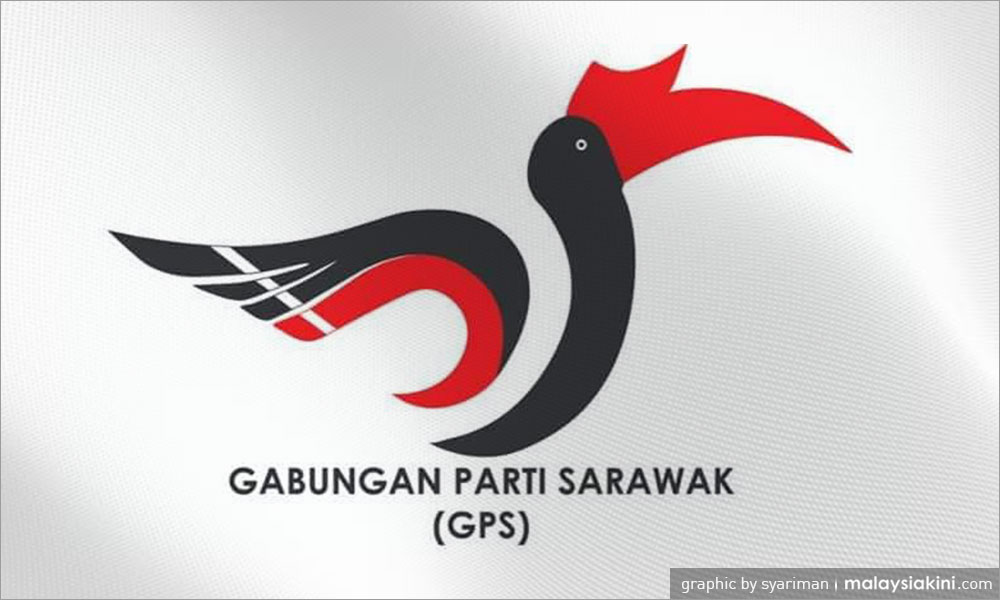
GPS component parties, even during their days as part of BN, have consistently pursued a moderate and multi-ethnic approach to politics, unlike Bersatu, Umno and PAS which all play to the same Malay-Muslim market.
For instance, the Sarawak GPS government had made incendiary preacher Zakir Naik persona non grata. Conversely, leaders of Bersatu, Umno and PAS had embraced Zakir to burnish their Islamic credentials.
Sarawak GPS had also recognised Unified Examination Certificate (UEC), a hot-button topic for Bersatu, Umno and PAS which see UEC as a threat to Malays.
GPS played a pivotal role in Muhyiddin’s ascension, providing just enough numbers at the eleventh hour for him instead of going the way of Dr Mahathir Mohamad.
While GPS has publicly stated that they are not asking for cabinet positions, the coalition will likely seek concessions from Muhyiddin in order to prove their value and bargaining power before the Sarawak elections that must be held by 2021.
So far, GPS has publicly stated that their focus was on the Malaysia Agreement 1963 and a larger share of its oil wealth – both issues which the former Pakatan Harapan government, which Muhyiddin was a part of, did not deal with within 22 months. – MKINI
MKINI



A very well written article on our current political situation in Malaysia. We will wait and see how long can the coalition last!!!
ReplyDeleteSoon the new government will collapse, we vote PH we want to see them in power again.
ReplyDeleteHigh hope unfortunately ha ve backing of powerful royals
DeleteYup. PN wont last 3 months
DeleteOnly the unabated greed and utter ruthless corruption of the Malay political leadership from PBBM, UMNO and PAS (all are equally predisposed to this corrupt vices) can cause the rest of the Malay population become completely disillusioned with the "Ketuanan Melayu" and "Keagungan Islam" BS. That was demonstrated in the last GE14 with UMNO defeated but the evil Dr M(amak) abused the trust of every progressive Malaysian to crush the spirit of Reformasi for change. Maybe this could galvanise the disillusionment of Melayu and Islam further among the disaffected Malay population. That is the only hope because only the Malays can institute any change within the entrenched Ketuanan and Keagungan crap because it's already electorally, legislatively and bureaucratically entrenched by 50 years of Mahathirism from the deposing of our beloved Tunku Abdul Rahman by Razak!
ReplyDeleteThe very fact that the Parliament session has been delayed till May shows how fluid the situation is.
ReplyDeleteThe point is PAS is already bankrupt and with borrowed money.To survive business,party or religion needs a lot of cash.Hence they cannot demand much as their power is limited.One more thing,Sarawak will demand 20percent profit from petronas.
ReplyDeleteI think if DAP MCA MIC term up n form a group they have better chances to save Malaysia. Unfortunately non muslims are stupid n so divided. Pride be4 fall I think is stupid. Need to be humble n work 2gether
ReplyDeleteIt is quite obvious PN would not last long, not when UMNO is such a gluttonous party trying to seize all the top cabinet post out there. After having assumed the MB post in Johore, Melaka and Perak, it will be emboldened to go for the coveted prize of DPM and the Finance Minister post. Surely, it don't support Muhyiddin just because it likes or loves him! It is all one political struggle to gain power and these nasty politicians would not stop to seek their destiny for higher position.
ReplyDeleteWell written and boils down to $$$$$ n perks to move forward. Politicians only seen listening when near ge apart from that few honor and represent them.
ReplyDeleteJom tengok wayang dulu ba.
ReplyDeleteThis loosely hammered coalition is truly an arrangement of convenience. With all the greedy MPs, thieving ex-ministers, liars, rent seekers this is a perfect mix or concoction for the explosion of the year. We will see PH return in 3 months.
ReplyDelete